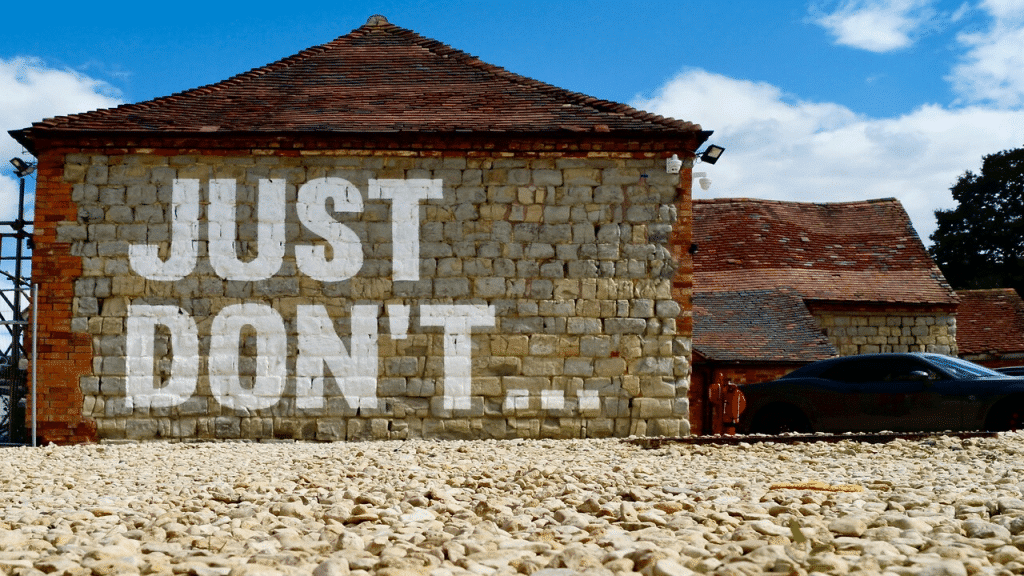
Boundaries are one of those topics that everyone talks about, but few people really understand how to apply in everyday life. Too often, boundaries are seen as walls meant to shut people out–but in reality, they’re the guidelines that allow relationships, work, and even your personal wellbeing to thrive. Whether it’s knowing when to say no, how to protect your mental health, or how to deal with someone who ignores your limits, boundaries can feel confusing at first. But once you master them, they become a powerful tool for living with more self-respect, clarity, and balance.
Below, we’ll break down the most common questions people have about boundaries and give you straight, practical answers you can actually use.
1. What Exactly Are Boundaries?

Boundaries are the rules and limits you set for yourself and others that define how you want to be treated. Think of them as a roadmap for respect. They tell people what’s okay and what’s not when it comes to your time, energy, emotions, and physical space. Without them, relationships become one-sided, work becomes overwhelming, and resentment quietly builds up. Boundaries aren’t about being rigid–they’re about being clear. They make it easier to connect with people because everyone knows where they stand.
2. Why Do People Struggle With Setting Them?

Many people grow up in environments where saying “no” was discouraged or even punished. Others tie their self-worth to pleasing people, so they fear rejection if they assert their needs. And in cultures that prize self-sacrifice, setting boundaries can feel selfish. But the truth is, healthy boundaries benefit everyone involved. If you’re running on empty, you can’t show up fully for others. Recognizing that boundaries are a form of honesty–not rejection–is often the first mindset shift people need to make.
3. How Do I Know If My Boundaries Are Being Crossed?

One of the biggest red flags is resentment. If you often feel drained, taken advantage of, or like you’re saying “yes” when you want to say “no,” that’s your internal alarm system going off. Physical cues like tightness in your chest, exhaustion, or anxiety before seeing someone can also signal that your limits are being ignored. Pay attention to those reactions–they’re your body’s way of telling you that a boundary is missing or being disrespected.
4. What Are the Different Types of Boundaries?

Boundaries aren’t just about saying no to extra work. They come in many forms: physical (who can touch you and how close people can get), emotional (how much of your feelings you share and with whom), time (when you’re available and when you’re not), digital (how and when you engage online), and financial (what you’re willing to spend or share). Recognizing the different categories helps you see where you may need to tighten things up and where you’re already solid.
5. What Does a Healthy Boundary Look Like?

A healthy boundary is clear, direct, and respectful–both to yourself and others. For example, instead of saying, “You never help around the house,” a healthy boundary sounds like, “I need us to share chores equally. I can’t handle doing them all.” It communicates your need without attacking or blaming. Healthy boundaries balance self-respect with compassion, making it possible to maintain closeness without resentment.
6. What’s the Difference Between a Boundary and a Wall?

A boundary is flexible and communicates where you stand, while a wall shuts people out completely. Imagine a boundary as a fence with a gate–you decide when to open it or close it. A wall, on the other hand, is made of bricks and gives no room for connection. People often build walls after getting hurt, but the problem is, walls keep love and support out too. Boundaries allow you to stay open without being overrun.
7. How Do I Set a Boundary Without Feeling Guilty?

Guilt often shows up when you’re not used to prioritizing yourself. A helpful reframe is this: every time you set a boundary, you’re modeling respect–for yourself and the other person. You’re showing them how to treat you and how to honor their own needs too. Start with small boundaries in low-stakes situations, like telling a friend you can’t stay out late on a work night. The more you practice, the more natural it feels, and the guilt fades.
8. What If Someone Gets Angry When I Set a Boundary?

This is common–and it usually says more about them than you. People who are used to benefiting from your lack of boundaries may resist when you finally draw the line. Expect pushback, but stay calm and consistent. You don’t need to over-explain yourself or apologize. A simple, “I understand this is hard for you, but this is what I need,” is enough. Over time, those who respect you will adjust. Those who don’t may fall away–and that’s part of making space for healthier connections.
9. Can Boundaries Change Over Time?

Absolutely. Boundaries aren’t set in stone; they’re living, breathing parts of your life that shift as your circumstances change. The boundary you set at age 25 about work hours may look different at 40 when you have kids. Even friendships and romantic relationships evolve, requiring you to renegotiate what feels right. Regular check-ins with yourself can help you adjust before resentment builds up. Flexibility makes boundaries sustainable.
10. How Do I Communicate Boundaries at Work?

Workplace boundaries can be tricky because power dynamics and job security are involved. The key is to keep it professional and clear. Instead of saying, “I’m overwhelmed,” try, “I’m at capacity and won’t be able to take on additional tasks until next week.” Frame it as a statement of fact rather than a complaint. Also, block off non-negotiable time for breaks or after-hours, so you don’t slip into constant availability. Clear communication makes you look reliable, not difficult.
11. How Do I Teach Kids About Boundaries?

Children learn boundaries best through modeling. If you let them see you say no respectfully, they’ll learn it’s okay to do the same. Teach them to respect personal space by knocking before entering rooms and to understand consent by asking before touching someone else’s things. Give them choices where appropriate, so they feel empowered to make decisions. Boundaries set in childhood lay the foundation for confidence and self-respect later on.
12. How Do Boundaries Protect Mental Health?

Boundaries are like mental health insurance. When you say no to things that drain you, you free up space for rest, joy, and meaningful relationships. They keep burnout, anxiety, and resentment at bay by ensuring your needs aren’t constantly sidelined. Think of it this way: every time you honor a boundary, you’re making a deposit into your mental wellbeing bank account. Over time, those deposits add up to resilience and peace of mind.
13. Can Boundaries Exist in Romantic Relationships Without Pushing Someone Away?

Yes–and in fact, they make intimacy stronger. Boundaries prevent codependency by ensuring both partners maintain their individuality. For example, needing alone time doesn’t mean you love your partner less–it means you’re recharging so you can bring your best self to the relationship. Couples who practice boundaries openly often report deeper trust, because each person knows the other is honest about their needs instead of quietly seething with resentment.
14. How Do I Handle Someone Who Repeatedly Ignores My Boundaries?

If you’ve stated your boundary clearly and consistently, but someone keeps ignoring it, it’s time to consider consequences. A boundary without follow-through is just a wish. For instance, if a friend keeps texting late at night after you’ve asked them not to, you can stop replying until morning. Over time, they’ll either adapt or reveal that they don’t respect you enough to stay in your life. Consequences aren’t punishment–they’re self-protection.
15. What’s the Role of Boundaries in Friendships?

Friendships thrive on mutual respect, and boundaries ensure that balance stays intact. Maybe you can’t always be the go-to listener at 2 a.m., or maybe you need to decline plans when you’re exhausted. True friends will understand and won’t take it personally. In fact, friendships often get stronger because each person feels safe to be honest. Boundaries help weed out relationships based on convenience from those built on genuine care.
16. Are Digital Boundaries Really That Important?

Yes–because without them, technology will run your life. Digital boundaries include deciding when to be reachable, how you use social media, and what kind of content you engage with. If you answer work emails at midnight or let social media arguments eat up your day, you’re letting technology dictate your wellbeing. Setting digital limits–like turning off notifications after a certain hour–creates healthier offline relationships and preserves your focus.
17. How Do I Start Building Stronger Boundaries Today?

Begin small. Pick one area of your life where you feel the most drained and identify what’s missing. Maybe it’s declining an invitation you don’t want to attend or putting your phone on “Do Not Disturb” after 9 p.m. Practice saying no without justifying yourself endlessly. Journal about what feels good when you do enforce a boundary. With repetition, you’ll gain confidence, and soon setting boundaries won’t feel like confrontation–it’ll feel like self-respect.






Ask Me Anything